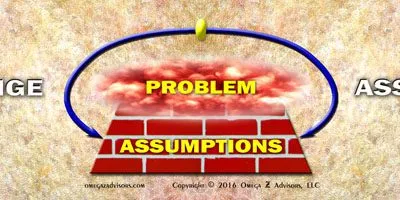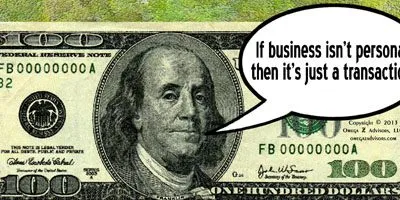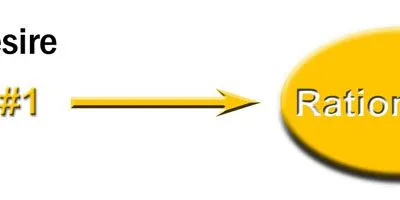Improve Your Business; Find a Dissenter
Posted on21 Oct 2010
TagsBrooke Harrington, Bridge on the River Kwai, BNET Blog, Alec Guinness, Academy Awards, business, investment clubs, Thomas A. Stewart, subconscious, Sam Spiegel, returns, peace, negative, movies, investors, harmony, dissent, decisions, David Lean, creativity, Copenhagen Business School, controversy, conflict, cognition
Comments0
A recent BNET post by Thomas A. Stewart talked about nurturing dissent and provided some valuable links. Rationally, it makes sense that... Read More
The Irrationality of Procrastination
Posted on14 Oct 2010
Tagsaction, Chrisoula Andreou, decisions, emotions, intuition, irrational, logic, Mark D. White, objective, Personality, Piers Steel, procrastination, rationale, reality, scientific, The New Yorker, The Thief of Time, University of Calgary
Comments1
I came across a book review in the October 11, 2010 issue of The New Yorker about The Thief of Time, edited... Read More
What Consumer Psychology Teaches Us About Problem Solving
Posted on27 Sep 2010
TagsMichael I. Norton, decisions, drugs, emotions, expectations, goal setting, Harvard Business Review, How Concepts Affect Consumption, intuition, keeping up with the Joneses, low-cost, Dan Ariely, objective, peer pressure, people, price, problem solving, psychology, rationale, rewards, teach, anticipatory, beverages, brain, business, buying habits, change, cognition, competitive, consumer, cost-benefit
Comments0
We often anticipate and rationalize people’s decisions using a cost-benefit analysis. This perspective frequently leads to erroneous conclusions and restricts problem-solving capabilities.... Read More
Arbitrariness: The Cornerstone of Conditions
Posted on23 Sep 2010
Tagsabsolute, arbitrariness, assumptions, build, conditionality, decisions, democracy, emotions, evalute, first, house, Influence, intuition, knowledge, numbers, Personality, perspective, problem solving, question, second, subjective, third
Comments2
Arbitrariness & First, Second, Third Arbitrariness is vital to intuitive problem solving because it’s related to subjectivity which is related to personality... Read More
The Words “Feel” and “Think” as Tools
Intuitive approaches require the identification of emotional drivers in influencing and problem solving. They generally work better than cognitive approaches because emotional... Read More
The Success of Failure and the Failure of Success
Posted on16 Sep 2010
Tagsobjective, feelings, flexibility, gain, history, intuition, joy, learn, legitimate, lesson, logic, mistakes, fear, organization, pain, perspective, Peter M. Madsen, planning, profitability, rationale, success, The Economist, Vinit Desai, Academy of Management Journal, anticipatory, decisions, emotions, employees, experience, failure
Comments7
How many times have we heard, “Nothing breeds success like success?” In a study of the orbital launch vehicle industry by Peter... Read More
The Rise of Intuition
Posted on09 Sep 2010
Tagsadvancements, biotechnology, BNET Blog, cognition, communications, decisions, emotions, feelings, illusion, Influence, intuition, knowledge, leadership, management, nanotechnology, Psychology Today, rationale, sales, scientific, sensors, uncertainty, unknown, wants
Comments1
The other day a colleague forwarded this link to the BNET blog speaking to intuition. Embedded in it was a link to... Read More
How Challenging Assumptions Every Day Improves Problem Solving
Posted on02 Aug 2010
Comments2
Experts often cite challenging assumptions as a great problem-solving tip. It helps one think outside the box. Yet, they don’t say much... Read More
Business is Personal and Why There’s No Way Around It
Posted on19 Jul 2010
Tagsfeelings, rationale, Personality, personal, money, intuition, emotions, decisions, business, assumptions, approaches
Comments2
How many times have you heard, “This isn’t personal, it’s business”? A key assumption underlying an intuitive approach is that everything people... Read More
Shopping for Rationales to Justify Wants and Desires
Posted on14 Jul 2010
Tagsemotions, approaches, cognition, decisions, desire, intuition, justification, knowledge, Personality, problem solving, rationale, subconscious, want
Comments2
Virtually all of our decisions are emotionally based. Therefore, as we saw in my previous posting, Decisions: Roles of Intuition and Cognition,... Read More




